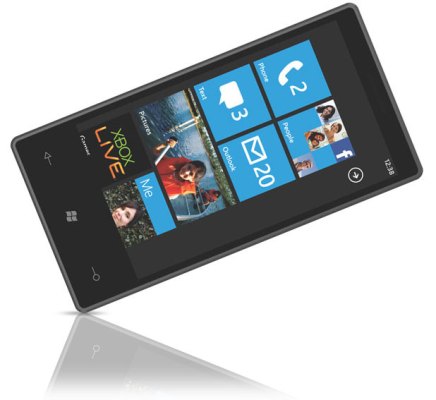Based on its history, you probably wouldn’t expect to see Windows Phone take off like a rocket. But apparently that’s what it’s going to do. Research out of Gartner and IDC says that Mango may grab a whopping 20 percent of the market by 2015, with the help of hardware partners like HTC and a little extra effort in the marketing department.
Thus far, Windows Phone hasn’t had the best reception. In some ways this is deserved, as many of the big features on the Windows OS were rolled out much later than they were on rival platforms. Even the carriers seemed to discredit WP7 in store — a trend Microsoft was definitely not cool with.
Windows Phone head of marketing Achim Berg said yesterday that IDC and Gartner’s 20 percent market share forecasts are actually conservative (shocker!), and he expects even greater success out of the platform. And the road to such success starts in Europe, with the launch of the HTC Radar and Titan on October 1. Microsoft has hired “hundreds of salesman” to help demonstrate the power of its newly refreshed platform, and plans to target the ladies and the youngsters to nab that 20 percent share.
If you passed elementary math, you know there’s only so much market share to go around. If Windows Phone goes from a 4.3 percent share to control 20 percent of the market, that means another platforms growth is sure to slow. According to Gartner, Apple’s iOS will be the one to do so, growing from a 16 percent market share in 2010 to just 17 percent in 2015. Meanwhile, Android is poised to maintain control with growth from a 23 percent share in 2010 to a massive 49 percent in 2015, reports Bloomberg.
What will make or break windows will be its app selection. HP’s decision to halt production of webOS devices will likely help with that, as a fresh batch of developers have just been abandoned. Still it’s got a long way to go to match the 425,000+ App Store apps that made the iPhone what it is today.
Past that, hardware is also key here. Microsoft will have the support of big name hardware vendors like HTC and Nokia, along with Acer, Fujitsu and ZTE. That same divide and conquer strategy has obviously worked splendidly for Android, and with the promise we’re seeing out of Mango, WinPho is sure to do the same. Since iOS appears on only one phone — an incredibly popular phone, but one nontheless — it’s at a significant disadvantage going forward.
